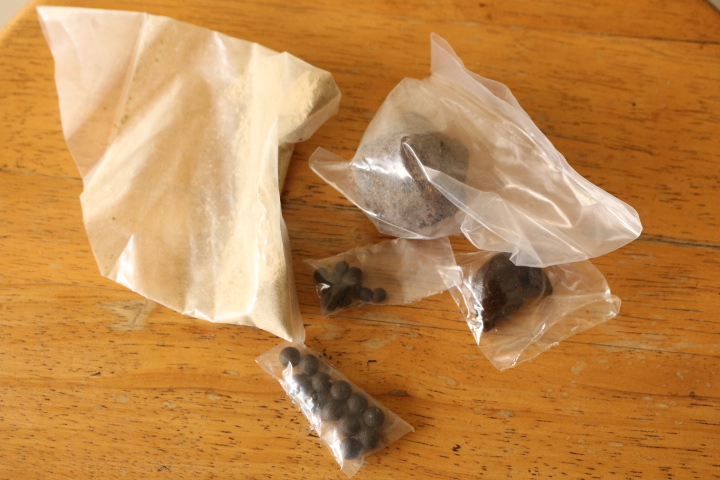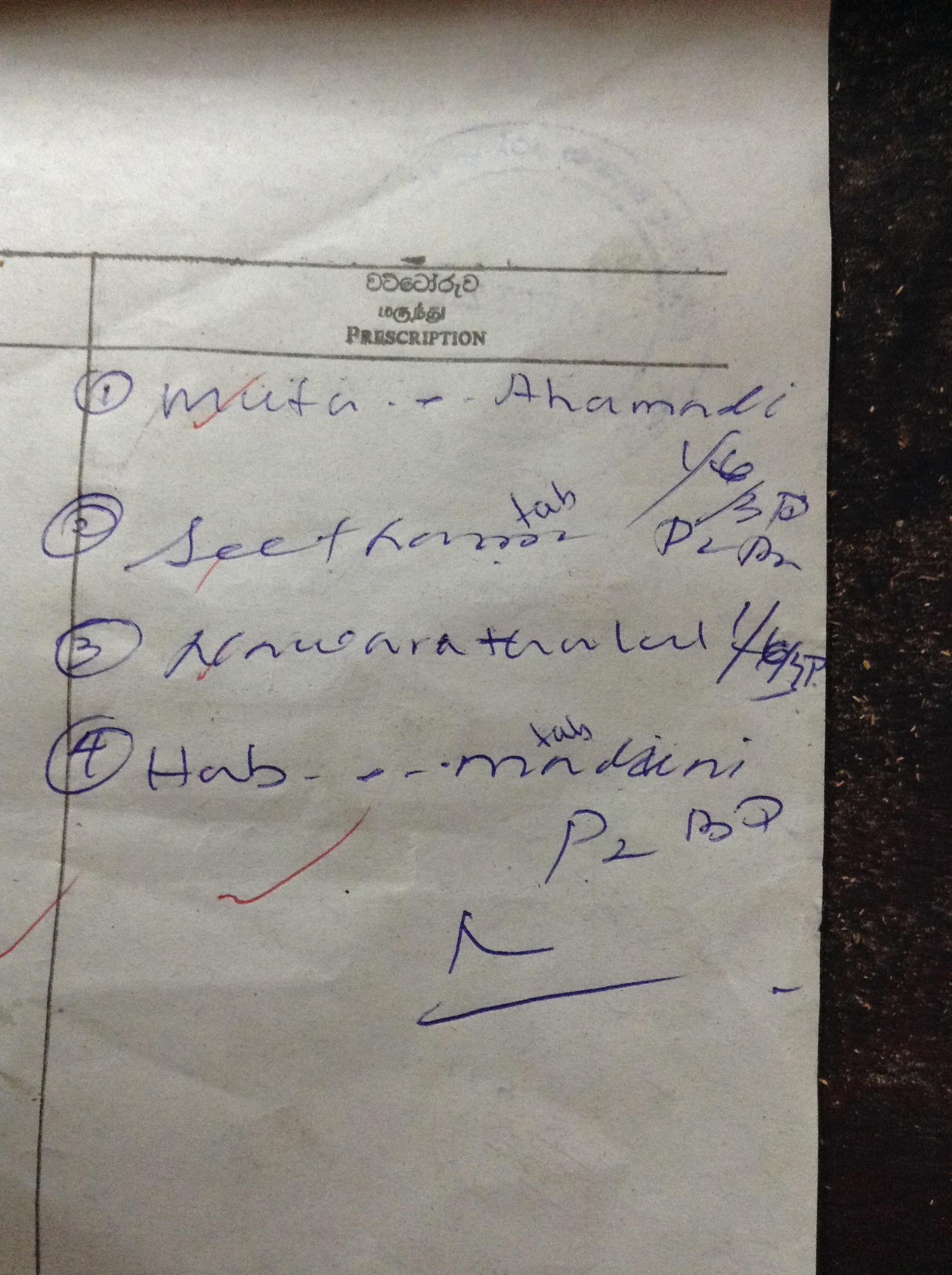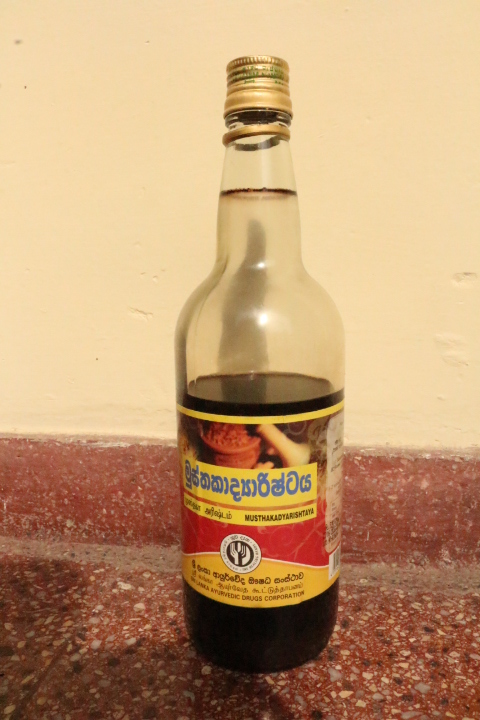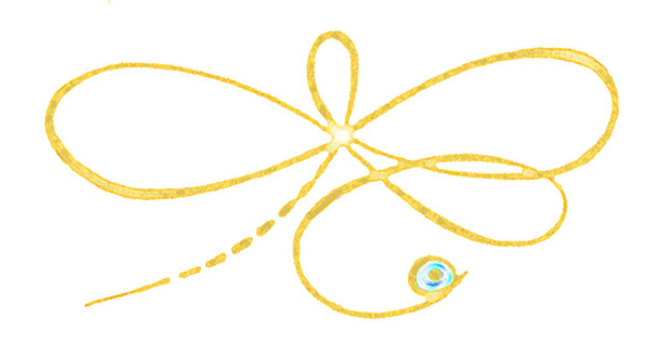Searching for faith in medicine
Girl, you have no faith in medicine
I have multiple invested interests in medicine; anthropological research, gore and awe-some fascination, conspiratorial scepticism, as well as, of course, the health of myself and others. But I don’t think I am the only one that “googles” all the medicines they, or their loved ones, are prescribed.
I tap in the etic, otic, gesic, zine, mine, pine or pam and reams of results splurge over my screen. Product markets, scholarly articles, clinical trials, patient forums, personal blogs, health websites, and government info pages are entangled together in careless algorithmic bundles. I scroll down thirstily, my intellect probing for logic and truth, and my dopamine receptors scanning for buzz words. Kill or cure, that’s what I’m looking for. Does this sound familiar to anyone else?
Then, when arriving in Sri Lanka, I thought I’d sample some Ayurvedic medicine on my little medical mission. I had a fairly familiar consultation experience with the doctor at the government hospital (apart from the leeches on his desk): he was friendly and attentive but fairly pressed for time. He asked plenty of questions about my health, plus some further questions, “Are you married?”, “Have you any children?” “Are you happy?” “How do you sleep?”. I thought I must be in the hands of a holistic healer! Either that or he was just very nosy. Then I was dished out a collection of kalkas, churnas, and vatis (jams, powders and tablets).

Check out the packaging for product marketing – there’s no sign of big Pharma on them! I asked him to write down the names of the medicines, and he obliged:

Now I’ve had to deal with doctors’ handwriting in the past, and I did manage to locate one of those medicines (nawarathna kalka), but the other three, however many different spellings, or possible combination of letters I could imagine, the internet just wasn’t having it.

Flo’s booze
The next time he handed me a big bottle of tonic. Try typing this into google, “Musthakadyarishtaya” – It’s an actual Googlewhack! A Googlewhackblatt even! Granted, it’s not in dictionary.com, and the rest of the website’s not even in Roman Script. I assume the Singhala/Hindi’s version of querty churns out plenty of information, but for my limited language skills, this was all that was available.
On another occasion, I saw a different Ayurvedic doctor, and he prescribed me something I did manage to find online, Avipattikar churna. One website result came back that my condition was a contra-indication for this medicine. I stormed back to the doctor and diplomatically demanded that he was an idiot. He was aghast at my accusations.
“I have spent years studying ancient texts, and much time assessing your individual problems, and have concluded that the combination of medicines I have prescribed are suitable for you. What right does the internet have over this information?”
I felt ashamed of myself. I do this to other doctors, and they seem quite used to it, often happy to discuss the potential risks. But this time, I was choosing to try a medicine that wasn’t full crazy chemicals with terrifying side-effects. I was choosing an ancient medical system that wasn’t about clinical trials and a one-size-fits-all manual. I then realised I was even choosing a different style of doctor-patient relationship. I was going to have to trust him.
Information for the inter-nations
Reading information on the internet about our health is informative to an extent; it does help us to gain further insight into our diagnosis and treatment, but it can also be problematic. There are side-effects even to a dose of daily dopamine!
Modern secularised, science-focused societies have convinced us that cause must equal effect, and that questions must be answered. We want these answers to be black and white, and we want to see them written in black and white, in Ariel or Times New Roman, on the internet. Only then will we believe them.
Furthermore, we’ve got used to the quick fixes of instant gratification. A hit on a keyboard; a pop on a pill, a blast of blue light. We want answers now.
But the truth is, even the most modern medicine is part of a long, complex discourse of knowledge. Medical students spend years studying themselves into an arcane inner-circle. They are let into secrets. Shamans, witch doctors, healers, holistic therapists – however they come by their knowledge, have become part of an esoteric community.
Now, these closed group circles are being forced open as knowledge is becoming more and more open sourced on the internet. And the untrained eye is not a welcome intruder amidst the medical gaze.
Losing Faith
Historically and cross-culturally, people have had faith in healers to draw from their secret magical medical education and deal with their ailments effectively. Common folk took the physician’s advice as they had no choice but to accept it.
Stereotypically, tribal medicine men and women are imagined as almost fearful figures, residing in liminal worlds and wielding the power of life and death. In the west, the doctor’s authoritative power is often depicted as flippant, aloof, arrogant even. Universal displays of a power that demands respect.
But with so much information available, doctor-patient relationships have rapidly changed. The “totalisation of medical knowledge”, which Foucault saw as harnessed for more than health but also economic control, is being picked apart as the patient becomes more intellectually, and financially independent.
In addition to the availability of alternative knowledge sources, litigation scandals, iatrogenesis lawsuits, bureaucratic hold-ups and life-threatening diagnostic mix-ups, are spread through multiplex media mediums like wildfire. Recurring old flames such as statins, steroids, and antibiotics, have given pharmaceuticals a worrying rep, and we simply just don’t have enough time with our doctors to discuss the details of our diagnosis and all possible treatments, and their potential risks. Through all this, physicians’ prescriptions are losing their prestige.
Free healthcare has also become contentious. By not paying for medical treatment people must surrender the entire responsibility of their health to the state, as though it were a guardian, not a government. Of course, if we want to live in our parents’ house we must abide by their rules, even though mum’s now developed an addiction to crack cocaine and dad’s got a gambling problem. They’re doing what they think is best for us…or are they? We have reason to doubt this supposed ‘unconditional love’ or so-called ‘welfare’.
Only recently I went to see a doctor with a swollen rib cage (mine, not hers) and a little difficulty breathing. She listened, barely looked, then prescribed some strong antibiotics…hmmm my google research found ‘intercostal muscle strain’. I think I might wait a little while before I cash in that little shopping list she scribbled out for me. Third opinion maybe!? The physiotherapist confirmed my thoughts, gave me a rub and some advice. I’m glad I googled this time.
We are suspicious, and quite rightly so. In the 1970s social philosopher, Ivan Illich accused the over-medicalisation of our society as being counter-productive. With a heavy heart I must agree. I went to the “save the NHS” meetings, but as I’ve said before, it ain’t what it used to be. It is no longer the case that you deal with your trusted doctor and their great body of knowledge and first hand experience, but with policies and protocols that stink of much worse than coffee breath and TCP.
Illich demanded that we need to start taking matters back into our own hands. “Effective health care depends on self-care.” I’ve bought my own over-the-counter antibiotics and ordered my own investigative procedures in Sri Lanka, but my unqualified expensive decisions were not full of self-assurance and success. In fact, what felt like skipping the queues at the time, just left me wandering in the worldwidewilderness. Surely self-medication and privately funded medical tourism is not the way forward? In such a minefield we need support and reassurance from those who have a map of the well-trodden routes around the mines, even if there may be some still lurking unearthed.
Being informed or too much information
So maybe scrolling the internet’s vast array of free knowledge provides the opportunity for us to scrape back a little power over our health. After all, knowledge is power isn’t it? Yet we are still left concerned and confused. I am anyway. This info overload is a blessing, and a blessing in disguise. Kill and cure.
It seems like the more information we have the less it makes sense. Patient forums can be helpful as they are real anecdotal evidence, but again, it is different for everybody. Clinical trials on rats with majority results are fascinating and welcomely made available online but we can’t base our own individual treatment on these either. It’s the same with food, diet, supplements – fads and their contradictions are being bandied about in blogs. We can try triangulating the information, but will just end up diagnosing ourselves with a possible life-threatening disease and eating nothing but Evian soaked chia seeds.
Other biological logic involved in systems such as Ayurvedic and Chinese medicine also don’t adhere to rules and guidelines as they proudly treat the individual and their infinite intricate idiosyncratic and idiopathic pathologies. For these, even the weather is a significant factor in bodily function. They are not really assessable in standard clinical trials, despite attempts – attempts that only lead to more unanswered questions and suspicion. The lesson learnt in my anecdotal confession.
Chaos and complexities
However hard we try and put 2 & 2 together from our search results, like our beautiful bizarre human being bodies, all medical theorems of disease are as imperfect as they are magnificent. There are so many supporting factors in treating a human being that an untrained patient pulling the “right” answer out of the online DSL is as useful as googling a brown splodge. We are untidily unravelling discourses of medical knowledge like a woolly jumper caught on a fence already full of sheep wool. We’re pulling it down over our own eyes, and finding ourselves lost in the dark and afraid.
Faith over fear
Choice and skepticism has encouraged us to demand to see truth, and not to feel faith. We’re looking for empowerment but we are finding more to fear. Faith is not just a religious term. It is not just blind. Faith is not just about saying that God knows what he’s doing and we should trust in his plan, whoever this God, or doctor, may be. Faith is a fundamentally human condition that is intrinsic even to scientific theory. It is a basic instinct we need to survive.
We all believe, and have faith, that the sun is going to rise in the morning, and the moon will be full again next month. Evidence-based medicine requires faith that it will be the same for the next rat, sorry patient. Thought experiments such as calculating what would happen to the earth if we removed the sun requires faith in previous theories. We can’t actually conduct this experiment, and the most experienced scientists are happy to admit that centuries of theorising can sometimes be wrong. Look at Copurnicus and the new guy who thinks the earth actually is flat after all!
So if all these theories can all be wrong, why and how can we trust them? If we don’t have faith then we are at the mercy of our fears, and this leads to desperation and irrational behaviour. Imagine if we doubted the sunrise tomorrow – how would we live every day thinking it was our last?!
“Give me a sugar pill and watch me just rattle down the street”
We’ve all heard of the placebo effect. It’s “proven” that some people react to placebos as though they contain real medicines with many reports showing that symptoms can improve whilst taking them. ‘Placebo effect’ success stories may satisfy demands for evidence, but actually it is a great precursor to the discussion that our mentality can be a factor in our reaction to physiological medical treatment.
A homeopath advised me to be “positive in everything you do” as he gave me the little white balls of, what, vibrations? British cynicism is hard to shake, but it does contain plenty of gallows humour which is actually a way for the bodymind to release the stress factor to some extent. It has a purpose of keeping us in the game, even if just to have a good laugh. You can de-power fear by laughing in it’s face: my parents’ golden advice on coping with this scary world. Hence, being brought up on Carry On films and Spike Milligan poems:
Things that go ‘bump’ in the night
Should not really give one a fright.
It’s the hole in each ear
That lets in the fear,
That, and the absence of light!
It’s certainly not a cure-all, but our worries can make us resistant to healing treatment, we inflame, phlegm and fight off the medicine as though it is disease. Our bodies defending themselves against friendly foes.
Wringing out resistance
I recently, by accident, went to an NLP (neuro-linguistic-programming) session. I thought it was all a bit of a 90’s fad but as ever, I stand corrected by my mother, and found some of the ideas were felt definitely worth a try. Apparently our negative thoughts only enter from our fully alert consciousness, or the “beta” brain wave state of 13-30hz. If we can condition ourselves, over 21 days, into positive mental thought patterns, the positivity can travel further into our deep psyche at an unconscious level and into our bodies.
Even cooking with positivity can make our food more nourishing. I noticed that when I was trying these techniques whilst preparing food I naturally felt negative and uneasy without even realising it. My mind was flooded with all the opposing theories about say, cooking oil – Oh to eat ghee or not to eat ghee, that is the question! But with an added ingredient of positivity, my meal was much more digestible.
In yoga we work on undoing the manifestations of stress in our bodies through physical asana and pranayama techniques to breath out tension, from the body and the mind. We aim to release the physical and psychological blockages held in a shrug or a crampy calf. How many times have you pulled your shoulders up to your ears when stressed, clenched your teeth, or tightened your hips when scared? As our bodies find calm, so can our minds. This works both ways.
In the modern world our natural reactions have gone haywire, we have become over-wired to over-protect ourselves. Inflaming and phlegming beyond necessity and subsequently increasing stress-related diseases by adding anxiety into the malignant mix. Fear is necessary for our survival, but the natural fight-or-flight response is being exploited by our fear of failure and further ill health. All this fuelled by flippant information and computer-generated confusion. In yoga practice, we are trying to get back into the natural flow of life that our bodies are originally designed within. Feel it inside your body, don’t just view it on a screen.
Healing in harmony
Our bodies are innately designed to heal, but external fear factors augment our “advanced consciousness” as though caught in an anti-evolutionary trap. Online obstacles are blocking the sacred channels of communication we have between our bodies and mind, and making us less able to trust what we feel inside.
We do also need to have some faith in our physicians, they wield worthwhile weapons against disease, but we need them to have faith in us too – have faith that we can handle information and that what we’re feeling is worth listening to. They need to appreciate our suspicions, allow us to ask as many questions as we need to and discuss risks and alternatives. The relationship must be one of mutual respect. And if you want a doctor who believes in what they’re doing, you have to believe in what you’re doing too. Help them to help us.
Seeking truth in a labyrinth of data, feelings, thoughts and theories is a hard quest. A mission near impossible. We try so many diets and supplements, de-stressing techniques, medicines, alternative medicines, and so it is hard to see which factor is, or isn’t working. Instead of pitting medicines against each other, judging them for working or not, or expecting immediate results from something overnight and panicking if we don’t get them, maybe we should have faith that our body is trying to respond, and give it a chance. We must keep asking questions but accept that the answers may not be instantly available and typed out in black and white.
Self-medication redefined…
No, not whisky and weed. Faith and fearlessness. Gandhi advised to be “kind, gentle, and fearless” – to ourselves as well as others. We are the only experts of our own body. We just need medical expertise to help us find what’s right. I’m not saying that thinking positively will cure all your ills (although I have now met people who will) but worry and resistance really doesn’t help, believe me. Remember that we are just part of this universe and it’s ever-unfolding complexities. Let yourself be part of it. Have faith that you’re worth good health. Learn what you can along the way, and learn to feel what feels right for you. It may take a lifetime and it may constantly change. Don’t worry. That’s ok.
I’m not just trying to be another random person on the internet spewing advice but I know what it’s like to lose faith when you’re googling all over the place, absorbing that blue light like an anabolic steroid, and doing, and not doing, everything you’re reading, and it’s still not working. But I’ve started taking every day as a another chance. Every breath is another attempt your body is taking to sync with the universe and take what it needs. Relax those fingers, soften your gaze and turn it inwards. There may not always be answers, but you can have faith that in there somewhere lies the truth.
[wpvideo z22N2qm4]

Hey Flo! As a new student of (medical) anthropology, I’m glad I finally took the time to click on your blog! Greetings from Berlin! Karoline
Oh how exciting – are you really studying medical anthropology? Great minds and kindred spirits as ever! I’ve gone a bit rogue with the blog, but can’t help channelling my thoughts of this lifeworld through the med anth lens. It is fascinating stuff! What are you studying so far?
Yeah, I’m really studying it! That is, my program is general social and cultural anthropology, but I do have a focus on medical and environmental anthropology 🙂
I basically had a general module as an introduction to it, and then a class more on science and technology studies, which I loved… and now I am planning my own field research for my MA thesis in Taiwan.
And I love the rogueness of your blog articles 🙂 it’s refreshing compared to the academic style of writing, but more in depth and connected to anthropology compared to most other kinds of blogs. Looking forward to reading more!
Flo your writing is superb. You put it all into perspective beautifully. To keep balance and and open but questioning mind. Keep it up x
I didn’t have any expectations concerning that name, but then the more I
was astonished. The author did a fantastic job. I spent a few minutes reading and checking the facts.
Everything is clear and understandable. I like posts that fill in your knowledge gaps.
This one is of that sort. Moreover, I enjoy how the
author organized his thoughts as well as the visual component.
Thank you for this comment! It’s a “her” by the way 🙂
You ought to be a part of a contest for one of the most useful sites on the net. I am going to recommend this website!